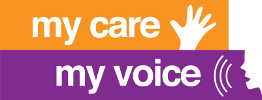Confidentiality is particularly relevant in the workplace, schools and healthcare settings. This page is here to help you understand your rights and how to take action if you feel your confidentiality has been breached.
Donate now: Support our work
Donate now: Support our work

Confidentiality in relation to HIV status can be a really important issue.

Confidentiality is particularly relevant in the workplace, schools and healthcare settings. This page is here to help you understand your rights and how to take action if you feel your confidentiality has been breached.
To keep information confidential means not sharing or disclosing this information to anyone else. There are many laws which protect your personal information, including the Data Protection Act and the Human Rights Act.
In many environments there are strict rules about keeping information confidential and people can get into trouble if they break these rules. In healthcare, for example, professionals such as doctors and nurses (as well as administrative staff such as receptionists) have to stick to strict confidentiality rules, which, if broken, mean they can be disciplined or even lose their jobs. These rules are set out by professional bodies such as the General Medical Council and the Nursing and Midwifery Council, as well as the NHS.
To find out more about confidentiality in healthcare download our guide Personal information and the NHS: a guide for people living with HIV. For advice more generally about confidentiality rights and privacy contact the Information Commissioners Office.
If you have disclosed your HIV status at work, your employer is bound by the Data Protection Act not to tell anyone else about your HIV status (including other members of staff) without your explicit permission. For further information visit our section on employment or read NAT’s guide HIV @ Work – Advice for employees living with HIV.
Although there are no formal confidentiality rules for social workers (like there are for Doctors) beyond those laid out in the Data Protection Act, there are strong professional standards expected of all social workers.
The General Social Care Council Code of Practice for Social Workers sets out the standards of professional conduct and practice required of social workers as they go about their daily work. The British Association of Social Workers has a similar Code of Ethics which expresses the values and principles integral to social work and gives guidance on ethical practice. Both of these codes have clear guidance on confidentiality in terms of personal information about clients. This means your social worker will respect your confidentiality and should not disclose your HIV status without your consent (unless in exceptional circumstances).
Additionally, Local Authorities have a general, common law duty to protect the confidential personal information which they hold in relation to social services functions. Under the Data Protection Act, in order for Local Authorities and their employees (including social workers) to disclose personal information about you, they must have your consent. If the information is ’sensitive personal data’, which covers any health information such as your HIV status, they must have your explicit consent before passing it on.
In very limited circumstances, social workers may tell someone else about your HIV status without your consent. If a Social Worker becomes aware of any apparent risk to a child or vulnerable adult which would be prevented by telling someone about your HIV status, they are obliged to do so under the principles of ‘safeguarding’. However, this is not something to be concerned about as it is extremely rare and would only be applied in exceptional circumstances.
If you are concerned about your confidentiality you should discuss this with your social worker, or ask the Local Authority for their Social Services confidentiality policy.
If you feel your confidentiality has been breached by your social worker, or anyone else who works in a Social Services department, you can complain through the relevant Local Authority. Every Local Authority has their own internal complaints policy which you will need to follow if you choose to make a formal complaint. You will be able to find this either on their website or by telephoning them. Depending on the outcome of the complaint, matters can be fed up to the General Social Care Council.
If you are unhappy about the outcome of your complaintyou can ask the Local Government Ombudsman to consider your complaint. You can contact the Local Government Ombudsman directly by writing, telephoning or emailing. Details on how to do this are available on their website www.lgo.org.uk. However, you should only do this once you have completed the Local Authority’s process.
If you do make a complaint, this should not make a difference to your care and you should not be victimised in any way for making your complaint.
Parents and carers are not required to inform a school that their child is living with HIV. This is because HIV cannot be passed on through day-to-day contact and everyday activities in the school environment.
If you do choose to inform a school of your child’s HIV status, you should speak to the school’s head teacher and they should agree to treat this medical information confidentially. The head teacher also needs to agree with the parents or carers and the pupil (where appropriate) about who should have access to this information. No more than two members of staff, possibly the head teacher and your child’s class teacher, need to know the HIV status of a young person, and the decision should be based on who can best support your child on a day-to-day basis. The role of the head teacher is to support the designated member of staff.
It is also worth bearing in mind that schools are subject to the Data Protection Act and as a child’s HIV status would fall within the category of ‘sensitive personal data’ schools must adhere to the requirements of the Act and the conditions on processing this data. If you are at all concerned about the confidentiality of your child’s HIV status and how this will be upheld, you should make your concerns known to the head teacher.
There have been cases reported of schools claiming they are required to inform all staff and parents of a child’s HIV status, or claiming they are required to inform a new school that a child is moving on to. Both of these circumstances are unacceptable.
If a school wants to make your child’s HIV status public, you should remind them this is sensitive, confidential information. It may be helpful to meet with them and discuss the impact this would have on your child if it happened. If you currently receive support from Social Services, your social worker may also be able to help you speak to the school and explain the importance of confidentiality. If you are still unable to resolve it you should contact your Local Education Authority.
If a school has passed on your child’s HIV status without your consent you can make a complaint to your Local Education Authority. Guidance from the Government on how to make a complaint about a school is available from Direct Gov.
If your employer is aware of your HIV status, they are legally obliged to keep the information confidential under the Data Protection Act. This law regulates how personal information is processed and protects all personal information of a sensitive nature (including information on physical or mental health conditions). This means your written consent is needed for this information to be passed on.
For further information visit download NAT’s booklet HIV @ Work – Advice for employees living with HIV.
The Information Commissioner’s Office (ICO) has produced a code of practice which clearly lays out an employer’s obligations and responsibilities to confidentiality under the Data Protection Act.
If you feel your confidentiality has been breached at work, the best thing to do is talk to your employer about it and see if they can put things right. If you’d like advice before doing this, you can call the ICO helpline on 0303 123 1113.
If you’re still unable to resolve the situation after talking to your employer, you can take your complaint to the ICO for review. If the ICO thinks the law has been broken, they can give the organisation advice and ask it to solve the problem. In a serious case, the ICO can order them to do so.
For further information, visit the ICO’s guidelines on when and how to complain about breaches of confidentiality.
NAT is always keen to get feedback from people living with HIV. It’s good for us to know if our information and resources are helpful or if there other things you want to know. Your experiences can also inform our policy work and assist us in campaigning for people living with HIV to be treated fairly, and with dignity and respect. To get in touch with us, please visit our feedback page and let us know your thoughts.
NAT’s vital work can only continue with the generous help of our supporters. There are many ways you can support us without costing you a penny, such as getting involved in Press Gang, becoming an HIV Activist or signing up to a ‘no cost’ fundraising activity. If you’d like to support our work, click here to find out the different ways you can help.